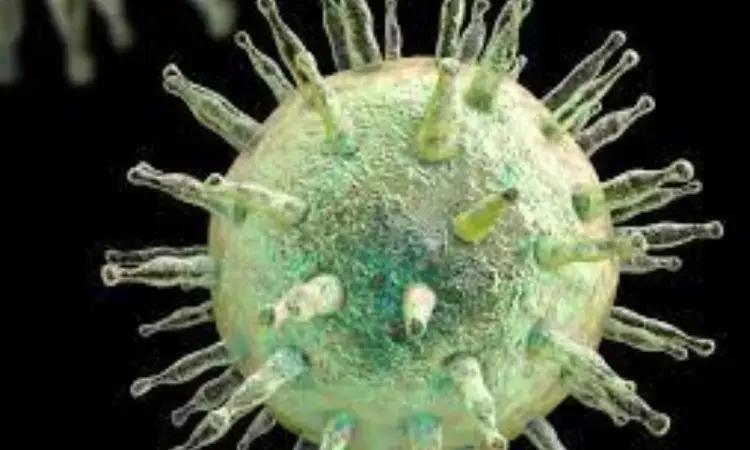- Home
- Medical news & Guidelines
- Anesthesiology
- Cardiology and CTVS
- Critical Care
- Dentistry
- Dermatology
- Diabetes and Endocrinology
- ENT
- Gastroenterology
- Medicine
- Nephrology
- Neurology
- Obstretics-Gynaecology
- Oncology
- Ophthalmology
- Orthopaedics
- Pediatrics-Neonatology
- Psychiatry
- Pulmonology
- Radiology
- Surgery
- Urology
- Laboratory Medicine
- Diet
- Nursing
- Paramedical
- Physiotherapy
- Health news
- Fact Check
- Bone Health Fact Check
- Brain Health Fact Check
- Cancer Related Fact Check
- Child Care Fact Check
- Dental and oral health fact check
- Diabetes and metabolic health fact check
- Diet and Nutrition Fact Check
- Eye and ENT Care Fact Check
- Fitness fact check
- Gut health fact check
- Heart health fact check
- Kidney health fact check
- Medical education fact check
- Men's health fact check
- Respiratory fact check
- Skin and hair care fact check
- Vaccine and Immunization fact check
- Women's health fact check
- AYUSH
- State News
- Andaman and Nicobar Islands
- Andhra Pradesh
- Arunachal Pradesh
- Assam
- Bihar
- Chandigarh
- Chattisgarh
- Dadra and Nagar Haveli
- Daman and Diu
- Delhi
- Goa
- Gujarat
- Haryana
- Himachal Pradesh
- Jammu & Kashmir
- Jharkhand
- Karnataka
- Kerala
- Ladakh
- Lakshadweep
- Madhya Pradesh
- Maharashtra
- Manipur
- Meghalaya
- Mizoram
- Nagaland
- Odisha
- Puducherry
- Punjab
- Rajasthan
- Sikkim
- Tamil Nadu
- Telangana
- Tripura
- Uttar Pradesh
- Uttrakhand
- West Bengal
- Medical Education
- Industry
Epstein-Barr virus, most plausible cause of multiple sclerosis: Study

USA: A new study has confirmed that the Epstein-Barr virus (EBV) may be a likely cause of multiple sclerosis (MS). Results of the study, published in the journal Science, showed that the risk of MS increases 32-fold after infection with EBV.
Multiple sclerosis, a chronic inflammatory demyelinating disease of the central nervous system whose etiology is unknown, affects 2.8 million people worldwide. Demyelination in the brain and spinal cord is an immune-mediated process that is known to be possibly triggered by a viral infection. The top candidate seemed to be the Epstein-Barr virus among the putative causal agents.
Against the above background, Kjetil Bjornevik, Department of Nutrition, Harvard T. H. Chan School of Public Health, Boston, MA, USA, and colleagues tested the hypothesis that MS is caused by EBV in a cohort consisting of more than 10 million young adults on active duty in the US military, 955 of whom were diagnosed with MS during their period of service.
The researchers evaluated 801 MS case-patients and 1566 matched controls without MS. Most of them were under 20 at the time of their first blood collection. Symptom onset for those who developed MS was a median of 10 years after the first sample was obtained.
Only one of 801 patients showed no serologic evidence of EBV. This person may have been infected with the virus after the last blood collection, failed to seroconvert in response to infection, or was misdiagnosed.
Based on the study, the researchers found that the risk of MS increased 32-fold following EBV infection but was not increased after infection with other viruses including the similarly transmitted cytomegalovirus. Also, serum levels of neurofilament light chain, a biomarker of neuroaxonal degeneration, increased only after EBV seroconversion.
"This study is the first to provide compelling evidence of a causal link between EBV and MS," the authors wrote in their study. "Collectively, these findings strongly suggest that the occurrence of EBV infection, detectable by the elicited immune response, is a cause and not a consequence of MS."
"These findings cannot be explained by any known risk factor for MS and suggest EBV as the leading cause of MS, they concluded.
Reference:
The study titled, "Longitudinal analysis reveals high prevalence of Epstein-Barr virus associated with multiple sclerosis," was published in the journal Science.
Dr Kamal Kant Kohli-MBBS, DTCD- a chest specialist with more than 30 years of practice and a flair for writing clinical articles, Dr Kamal Kant Kohli joined Medical Dialogues as a Chief Editor of Medical News. Besides writing articles, as an editor, he proofreads and verifies all the medical content published on Medical Dialogues including those coming from journals, studies,medical conferences,guidelines etc. Email: drkohli@medicaldialogues.in. Contact no. 011-43720751


